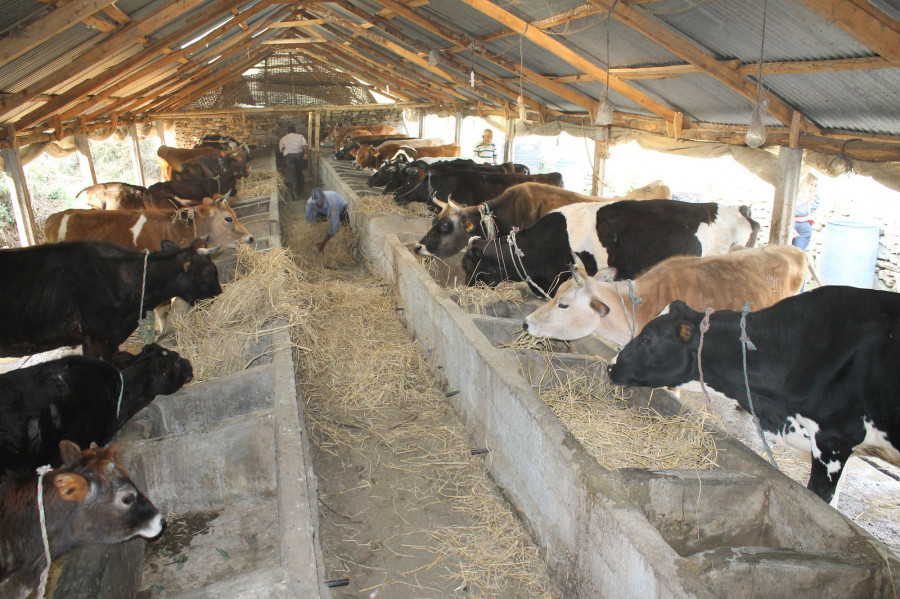Money
Dairy industry struggles to survive despite easing of restrictions
Producers are continuing to lose more than Rs1 billion monthly, officials say.
Krishana Prasain
The dairy industry is still struggling to survive, even though other sectors are slowly making a comeback, five months after the end of the lockdown that brought the economy to a standstill, according to the Nepal Dairy Association.
Demand for milk continues to remain subdued after plunging by 70 percent during the four months of the stay-home order when people could not go outside.
“After the lockdown was lifted in July, demand for dairy products rose slightly; but it started to decline again,” said Radha Krishna Sapkota, president of the association.
Schools, restaurants, hotels and universities were ordered closed to prevent the virus from spreading, and this wiped out much of the food service market that makes up a big chunk of the dairy business.
Farmers and cooperatives have been forced to dump milk and even finished products such as ghee and milk powder as there are no buyers, Sapkota said.
The dairy sector contributes 9 percent to the gross domestic product.
“With the fall in consumption and production, the contribution of the dairy industry to the gross domestic product is expected to shrink. Farmers' incomes will drop and many cooperatives will suffer,” said Sapkota.
The association estimates that the four-month lockdown resulted in losses totalling Rs20 billion to the dairy industry.
Even after travel restrictions were withdrawn, dairy producers are continuing to lose more than Rs1 billion monthly for lack of demand, the association said.
According to the association, 20 percent of the dairy industry's revenue comes from out of home sales, which have evaporated completely. “Making a profit is something else, dairy entrepreneurs are struggling to manage their daily expenses,” Sapkota said.
According to the association, the urban market used to consume 800,000 litres of milk daily before the pandemic. This figure has been halved to 400,000 litres currently.
“The government has not addressed the dairy sector's suffering by offering any relief package,” Sapkota said.
The association has asked the government to provide a subsidy of Rs5 per litre as an incentive to milk farmers hit by the pandemic, but it has not been forthcoming, the association said.
Farmers have no access to the agriculture grants the government has been providing because the paperwork is too complex for them, he added.
The grants are obtained by people who are in power or are close to it, and the actual farmers do not get anything, he added.
The government should simplify the process so that farmers have access to funding for their business, he said. With no supportive response from the government, dairy entrepreneurs are anxiously waiting for the pandemic to end so that they can revive their business.
“The association had appealed to the authorities concerned through the National Dairy Corporation to make soft loans and relief packages available to dairy farmers as they are suffering from lack of capital. But the government did not make any move to rescue the industry,” he said.
During the first lockdown, dairy products including powder milk, butter and ghee worth Rs5 billion remained in storage, and there was no chance of immediate sales at that time.
Milk farmers received no money for three months because manufacturers could not pay them since their running capital was tied up in unsold inventory, he said.
Around 500,000 households are engaged in the dairy sector in the country. Private dairy producers have invested Rs25 billion in the industry, according to the association.




 9.7°C Kathmandu
9.7°C Kathmandu















